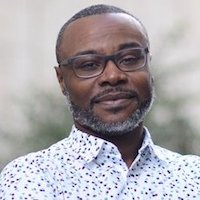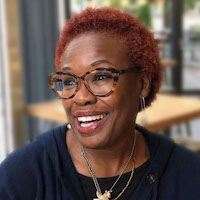The Feminist Studies Department is thrilled to welcome three new Feminist Studies professors – a very exciting expansion in areas that the department has prioritized, including Indigenous and Africana Studies.
Meet our new faculty …
 Assistant Professor Caitlin “Katie” Keliiaa is an Indigenous Feminist Historian focused on the interdisciplinary fields of Native American Studies, Labor Studies, and Feminist/Critical Race and Ethnic Studies.
Assistant Professor Caitlin “Katie” Keliiaa is an Indigenous Feminist Historian focused on the interdisciplinary fields of Native American Studies, Labor Studies, and Feminist/Critical Race and Ethnic Studies.
She earned her first M.A. in American Indian Studies at UCLA, her Ph.D. in Ethnic Studies at UC Berkeley and most recently was a President’s Postdoctoral Fellow in UCSC’s History Department. She will teach her first UCSC class on Indigenous Feminisms in Winter 2021, and a lower-division course on California Indian History in Spring 2021.
Katie’s book project – Unsettling Domesticity: Native Women and 20th-Century Federal Indian Policy in the San Francisco Bay Area – examines how Native women domestic workers negotiated and challenged the Bay Area Outing Program. In this work she centers Native women’s voices uncovered from federal archives. This scholarship excavates little-known histories of Indian boarding schools and outing programs and interprets them not simply as projects of education or assimilation, but instead, as part of the broader history of labor and dispossession that continues the U.S. project of settler colonialism, genocide, and surveillance of Native bodies.
Related to Native women’s labor, Katie also explores Native and Japanese connections at the Manzanar concentration camp in Eastern California. Her scholarship has been supported by the Ford Foundation, The American Council of Learned Societies, and the American Indian Graduate Center, among others. Katie has a passion for heritage languages, community histories, and archival research. She is Yerington Paiute and Washoe, and her tribal communities inform her scholarship.
 Associate Professor Xavier Livermon was hired through the Black Studies recruitment for the Critical Race & Ethnic Studies program and is an anchoring faculty member for the new Black Studies minor. Xavier earned his PhD from UC Berkeley and comes to Santa Cruz from the University of Texas-Austin, where he was an Associate Professor of African & African Diaspora Studies. His research exists at the intersection of popular culture, gender, and sexuality in post-apartheid South Africa,encompassing African Cultural Studies, Black Popular Music, Black Performance, Black Queer Studies, HIV/AIDS and African Diaspora Studies.
Associate Professor Xavier Livermon was hired through the Black Studies recruitment for the Critical Race & Ethnic Studies program and is an anchoring faculty member for the new Black Studies minor. Xavier earned his PhD from UC Berkeley and comes to Santa Cruz from the University of Texas-Austin, where he was an Associate Professor of African & African Diaspora Studies. His research exists at the intersection of popular culture, gender, and sexuality in post-apartheid South Africa,encompassing African Cultural Studies, Black Popular Music, Black Performance, Black Queer Studies, HIV/AIDS and African Diaspora Studies.
This Fall, Xavier is teaching a FMST Topics course in African Queer Studies (FMST 188-03) and will be offering a FMST graduate seminar in Spring 2021. As a core faculty member in CRES as well as FMST, Xavier also is teaching Approaches to Black Studies (CRES 68) this Fall and will be teaching other CRES classes as he helps develop the Black Studies minor.
Xavier’s most recent book, Kwaito Bodies (Duke University Press, 2020) examines the cultural politics of the youthful black body in South Africa through kwaito, a style of electronic dance music that emerged in Johannesburg following the end of apartheid. Drawing on fieldwork in nightclubs and analyses of musical performances and recordings, Livermon applies a black queer and feminist studies framework to explore the work of popular kwaito artists like Lebo Mathosa, Mandoza, and Boom Shaka.
Xavier’s current project, tentatively entitled Queer(y)ing Freedom: Constructing Black Queer Belonging in South Africa, has resulted in a number of published essays in GLQ; Gender, Place, and Culture; and Feminist Studies. In this book, Xavier examines how black queer South Africans construct forms of cultural and national belonging in a climate where progressive constitutional rights do not always translate in quotidian practice.
 Professor Gina Athena Ulysse is anaccomplished feminist cultural anthropologist and internationally recognized performance artist and poet.With a focus on the Caribbean and broader African Diaspora, her research in gendered labor, geopolitics, historical representations,and sacred materials revives aspects of the past to engage with the complexities of the present. Her ultimate aim is to confront the visceral embedded in structural analyses.
Professor Gina Athena Ulysse is anaccomplished feminist cultural anthropologist and internationally recognized performance artist and poet.With a focus on the Caribbean and broader African Diaspora, her research in gendered labor, geopolitics, historical representations,and sacred materials revives aspects of the past to engage with the complexities of the present. Her ultimate aim is to confront the visceral embedded in structural analyses.
Gina comes to UCSC from Wesleyan University where she was a Professor of Anthropology and African American Studies for 19 years. She earned her PhD in Anthropology from the University of Michigan, Ann Arbor. Gina will teach her first classes at UCSC in Spring 2021 – Black Feminist Ethnographies, as well as a workshop, Experimenting with Rasanblaj – a gathering of ideas, people, things, and spirits.
Gina is the author of Downtown Ladies: Informal Commercial Importing, A Haitian Anthropologist and Self-Making in Jamaica (2007), and Why Haiti Needs New Narratives: A Post Quake Chronicle (2015), published in English, Kreyòl and French. Her last book, Because When God is too Busy: Haiti, me & THEWORLD (2017), is a collection of photographs, poetry, and performance texts. It was awarded the 2018 Best Poetry Connecticut Center for the Book Award and was long-listed for the 2017 PEN Open Book Award.
Gina was the invited editor of "Caribbean Rasanblaj” a double issue of e-misférica, NYU's Hemispheric Institute for Performance and Politics journal. Her writing has been published in American Ethnologist,AnthroNow, Feminist Studies, Gastronomica,Journal of Haitian
Studies,Liminalities, PoemMemoirStory, Meridians,Souls, Third Text, and Transition Magazine. In 2015, Gina received Wesleyan’s Binzwanger Prize for Excellence in Teaching, as well as the Haitian Studies Association’s (HSA) Excellence in Scholarship award. In 2018, she was awarded the Anthropology in the Media Award (AIME) by the American Anthropological Association, in recognition of her works in the public sphere. In 2020, Gina was invited and commissioned to create a performance-installation, “An Equitable Human Assertion,” that was exhibited on Cockatoo Island, in Sydney, Australia.
